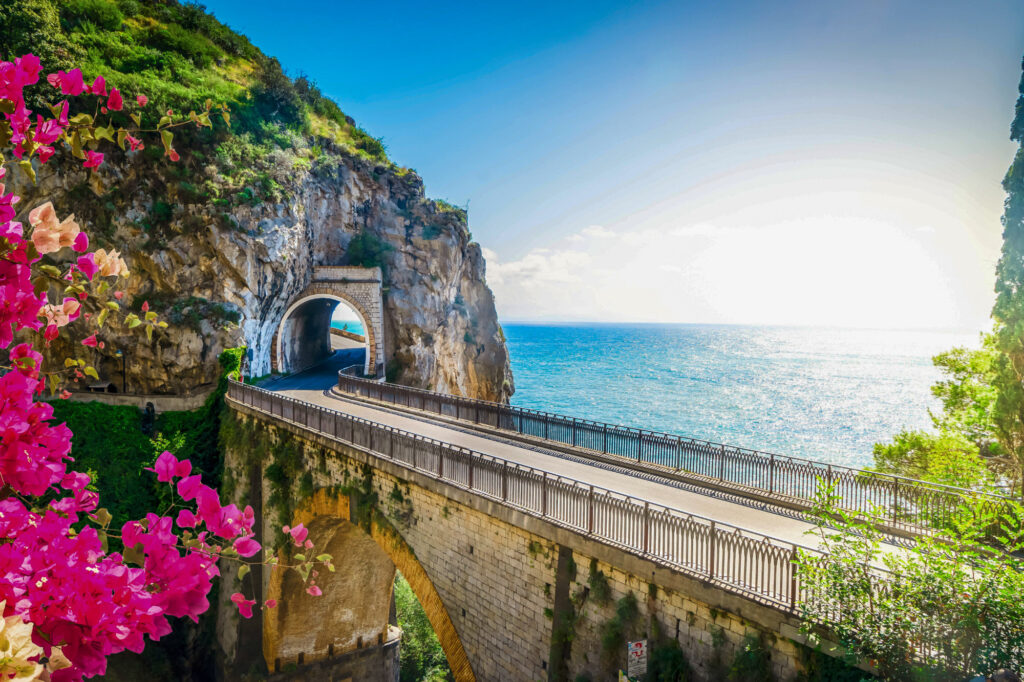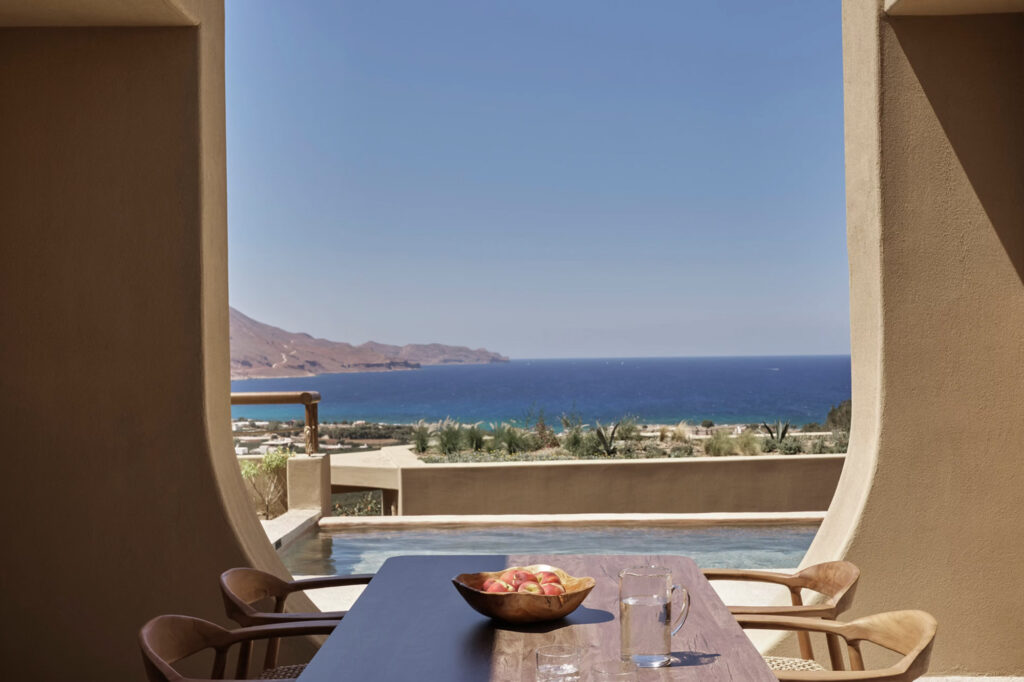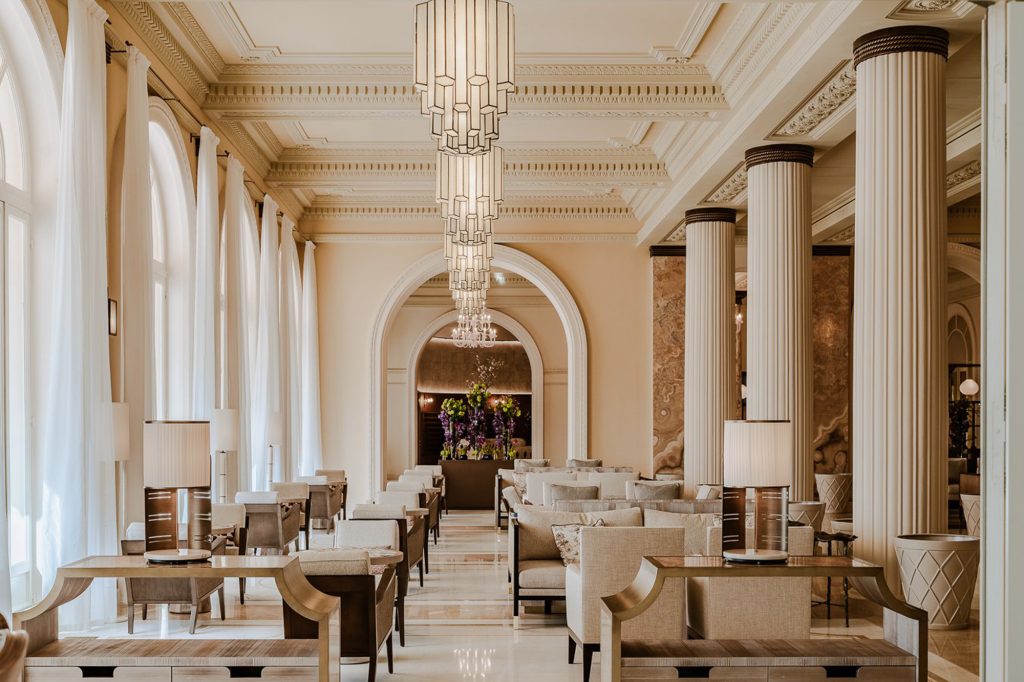
The Mediterranean
The Mediterranean hot list
Autumn 2025
The Mediterranean • Insider guides • The Mediterranean hot list Autumn 2025
What we’re loving in Autumn 2025 (and you will too)
Stay informed and stay inspired! The Mediterranean hot list is your monthly dossier of what’s shaping the cultural and creative landscape across the Mediterranean. From smart new openings and design-forward projects to events worth pencilling into your diary, we spotlight the ideas and initiatives that matter. Whether you’re a local with a keen eye on your surroundings or a traveller seeking authentic inspiration, this is your curated guide to the things that are getting our attention (and deserve your’s, too).
Be the first to know. Get on the list.
Top photography courtesy of Aman Rosa Alpina

01
Aman Rosa Alpina: South Tyrol’s alpine sanctuary
In the heart of the Dolomites, the historic Rosa Alpina has been reborn as Aman Rosa Alpina. Following a significant renovation led by architect Jean-Michel Gathy, the resort reopened in summer 2025. While now under the Aman brand, it remains in the hands of the Pizzinini family, who have owned the property since 1939. The redesign is modern and minimalist, featuring larch-stripped exteriors that naturally age, soaring ceilings, expansive glass windows, steel accents and a palette of muted greys and beige. At its heart remains Norbert Niederkofler’s three-Michelin-starred St. Hubertus, continuing its acclaimed ’Cook the Mountain’ philosophy with ingredients sourced exclusively from the surrounding terrain.
Aman Rosa Alpina
Strada Micurà de Rü 20
San Cassiano
Italy
Photography courtesy of Aman Rosa Alpina


02
Balay: Milan’s intimate wine escape
Milan’s dining scene thrives on reinvention and Balay arrives as its latest hotspot. Conceived by chef Ray Ibarra, the restaurant takes its name from the Tagalog word for home, a nod to the Filipino influence woven through his Italian training. The restaurant offers small plates that pair tropical and spiced flavours with natural wines, artisanal international beers and a rare Filipino San Miguel beer. The interior design, done by Studiomille, preserves rustic elements like distressed plaster and patterned tiles, layering them with warm textiles, dark woods and sculptural lighting to create a lived-in, communal atmosphere. Multimedia shelving, adjustable walnut displays and glowing curtains give the space a theatrical warmth.
Balay
Via Achille Maiocchi 26
Milano
Italy
Photography courtesy of Balay

03
Grand Hotel Central: a timeless urban getaway in Barcelona
Grand Hotel Central sits on Via Laietana, perfectly placed between the Gothic Quarter and El Born. Built in the 1920s for Catalan magnate Francesc Cambó, it was once Barcelona’s tallest building – and it still commands attention. The interiors, refreshed by London’s Sagrada Studio, mix warm woods, bronze accents and graphic textiles, favouring clean modernism infused with Catalan character. The rooftop infinity pool and sky garden frame Barcelona on a cinematic scale, while La Terraza pours cocktails against the skyline and Can Bo plates up Catalan-inspired dishes with local ingredients. The rooms feel composed and calm, with stone, linen and bespoke touches that nod to Noucentisme. Add a thermal suite and urban spa and you’ve got a city stay that’s both stylish and comfortable, with the best of Barcelona just steps away.
Grand Hotel Central
Via Laietana 30
Ciutat Vella
Barcelona
Spain
Affiliate link (what is it?)
Photography courtesy of Grand Hotel Central


04
Jaç: Barcelona’s design-driven listening bar
Jaç is part café, part listening sanctuary, part neighbourhood living room – a space where sound takes as much stage as coffee. Inspired by Japan’s jazz kissas, every detail is tuned – dim lighting, vinyl crates, plush acoustics and baristas who treat espresso like a composition. The name means jazz in Catalan and there’s a syncopated energy to the space. By day, it’s a concept store where furniture, lighting and ceramics take centre stage – by night, it shifts into intimate gatherings, low-volume sets and occasional music events. The interiors themselves are ever-changing, a curated rotation of pieces that blur the line between gallery and lounge. Jaç is a manifesto for Barcelona’s creative life, a cross-cultural bridge where design, sound and social rhythm converge into moments that feel lived-in, alive and entirely intentional.
Jaç
Avinguda Diagonal 335
Barcelona
Spain
Photography courtesy of Jaç


05
Terre: Ionian Islands’ minimalist mediterranean dining hotspot
In the heart of Argostoli, Terre (also known as Terre Mouikis) transforms a former commercial building into a secluded garden restaurant where architecture and cuisine converge. Architects Simone De Nardi, Manos Matsis and Panagiotis Kourkoumelis made use of the property’s hidden backyard. They introduced diagonal walls to guide movement from the entrance to the garden. Along the way, they placed a waiting bar and a staircase inspired by Casa Malaparte, which climbs to a rooftop dining terrace. There are no traditional doors – spaces flow, guided by diagonal walls that stretch from the entrance gate to the garden’s edge. Chef Asimakis Chaniotis, renowned for his Michelin-starred tenure at London’s Pied à Terre, brings his expertise to the menu, highlighting local ingredients with dishes like smoked eel paired with fennel and lamb infused with wild herbs.
Terre
Stavrou Metaxa 10
Argostólion
Greece
Photography courtesy of Terre

06
Soho Farmhouse Ibiza: Balearic Island charm meets creative retreat
The Soho House group has expanded its members’ club DNA to the Balearics, reimagining the farmhouse concept against Ibiza’s sunlit landscape. Set on a working olive grove, the property is made up of restored fincas and new-build pavilions arranged around orchards and pools. The architecture pays homage to traditional Ibizan fincas, incorporating elements like terracotta floors, wooden beams and whitewashed walls. Interiors feature rattan furnishings, linen four-poster beds, silk rugs, locally sourced plaster lamps and artful nods to bohemian Ibiza. Soho Farmhouse Ibiza offers a programme that mixes wellness, pools and intimate dining rather than the usual all-night scene. Facilities include a gym, an open-air yoga deck and thermal experiences like a sauna and ice baths. Set among the olive trees, the outdoor restaurant serves a Balearic-inspired menu made from locally sourced ingredients.
Soho Farmhouse Ibiza
Camino Viejo de Sant Mateu
Santa Gertrudis de Fruitera
Illes Balears
Spain
Photography courtesy of Soho Farmhouse Ibiza


07
Forum: Marbella’s sunlit retail space
Forum Marbella rethinks daytime life on the Golden Mile, centring an Andalusian courtyard and a curated mix of retail, dining and community spaces. The Brendmoe siblings from the Antima Group envisioned a place that breaks free from Marbella’s nightlife focus, offering an all-day, family-friendly spot. The design balances Scandinavian influences with Andalusian architecture. At the heart of Forum is an Andalusian-style courtyard with bistro tables around a stone fountain. It’s a gathering spot for coffee, conversation and community. At Forum the options are diverse and endless. Enjoy Swedish pastries at Nybakat, Asian-inspired dishes at Beast, seafood and prosecco at Fisherman’s Daughter and Italian dining on the terrace at Florentine. Browse design at Sandon, beauty at Narybu and floral creations by Virginia González. You can also stay active and connected at the rooftop gym, The IO.
Forum
Av. Bulevar Príncipe Alfonso de Hohenlohe 7
Marbella
Málaga
Spain
Photography courtesy of Forum


08
Dandelion: Paris’s buzzy neighbourhood bistro
Paris’s new dining darling is Dandelion, a restaurant where art and gastronomy orbit one another. Chef Antoine Villard, who trained under the bistronomy virtuosos at Septime and drew inspiration from Double Dragon’s Asian-inflected creativity, leads the kitchen. The menu is concise and inventive, offering small plates like bluefin tuna with redcurrant and marigold and sweet corn with confit tomato, mussels and amontillado sauce. Design duo Marie Deroudilhe and Benjamin El Doghaïli frame the dining experience – mirrored walls, banquettes, opaline pendants and vintage Baumann chairs create a kinetic, intimate energy. Studio Ortie’s floral touches soften the geometry, while the restaurant’s modest scale ensures a relaxed rhythm.
Dandelion
46 Rue des Vignoles
Paris
France
Photography courtesy of Dandelion

09
Phaea Cretan Malia: coastal sustainability in Crete
Set between olive groves and Aegean blue, Phāea Cretan Malia feels like a home grown from the island itself. Phāea Cretan Malia is the vision of Cretan-born sisters Agapi and Costantza Sbokou, who have shaped every detail of the resort – from interiors to hospitality ethos. Risen from the original late-1980s modernist complex by Antonis Stylianides, the resort was rebuilt in 2018 by Vana Pernari Architecture Studio. The renovation blends Crete’s traditional palette – walnut, chestnut, rattan, ceramic and brass – with colourful murals, textures and botanical motifs. The resort balances family-minded amenities with a sense of place. Kids’ clubs, wellness sessions and water sports sit alongside organic gardens that feed three restaurants serving Cretan, Italian and Levant-inspired dishes. Wellness, slow living and sustainable operations are part of the rhythm here – yoga, serene gardens and farm-to-table dinners make the pace unhurried.
Phaea Cretan Malia
Malia
Greece
Affiliate link (what is it?)
Photography courtesy of Phaea Cretan Malia


10
Casa Mùsica: Madrid’s hybrid evening hotspot
Casa Mùsica opened in Chueca as part restaurant, part bar, part music venue. Set in a converted industrial building, Estudio DIIR used stacked concrete blocks to form the core structural elements – bars, benches and sculptural forms – that also help with sound absorption and acoustic balance. To soften the industrial edge, they’ve layered in dark wood finishes, steel details and a striking stone table near the street-facing opening. And the ceiling? A cloak of dark cellulose that gives the whole room a cave-like, immersive hush. On the ground floor, dinner meets design. Here you can enjoy refined, modern cuisine served in an intimate, design-forward setting. Descend to the vaulted basement and the energy shifts – lights dim, sound deepens and the room becomes a late-night playground where cocktails flow.
Casa Mùsica
C. de San Mateo 22
Centro
Madrid
Spain
Photography courtesy of Casa Mùsica
Share this
Stay in the know
Sign up for the latest hotspot news from the Mediterranean.





















































